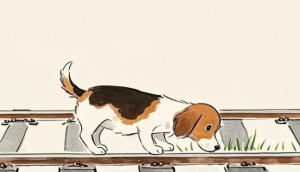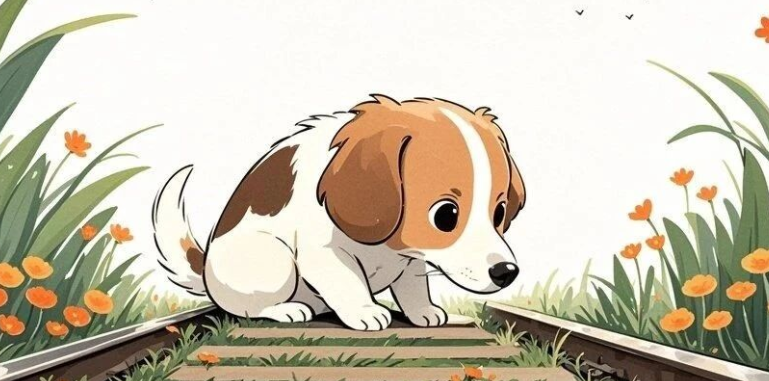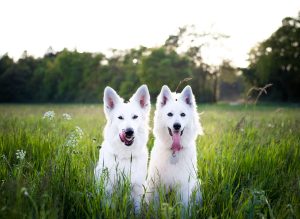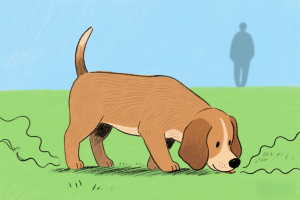Many dog owners have probably noticed their dogs munching on grass by the roadside during walks and wondered if this behavior is abnormal. In fact, in most cases, it’s perfectly normal.
-
One reason dogs eat grass is to help with digestion.
Sometimes dogs may feel stomach discomfort—they might have eaten too much, consumed something they shouldn’t, or have excess stomach acid. At such times, they may instinctively chew on grass to help expel food causing discomfort or digestive issues, including hairballs. During this period, dog owners should pay attention: some dogs will pass the grass naturally with their stool, while others may vomit. If vomiting is severe, it could indicate a gastrointestinal problem, and prompt veterinary attention is necessary.
-
Dogs may eat grass due to a nutritional deficiency.
Grass contains some roughage that can help promote intestinal motility, improve constipation, or aid in expelling foreign objects from the gut. Some dogs’ regular diets may lack certain trace elements or plant nutrients, and eating grass may serve as a way to compensate for these deficiencies.
-
Eating grass can be instinctive or driven by curiosity.
Wild ancestors of dogs may have eaten the entire stomach contents of prey, which included grass and plants. This plant-eating behavior may be a leftover instinct. For puppies or young dogs, eating grass is often purely out of curiosity and serves as a way to explore new things.

-
Usually eating grass is harmless, but there are special situations owners should be cautious about
① If a dog suddenly eats large amounts of grass frequently and quickly, accompanied by vomiting—especially if the vomit contains blood, yellow bile, coffee-colored liquid, or mucus, and the dog appears lethargic—this indicates illness, and veterinary care is required immediately. Do not try to medicate the dog yourself.② In public green spaces or someone else’s lawn or orchard, be careful: these areas may have been sprayed with pesticides. If a dog consumes such grass, it can be poisoned and this is extremely dangerous. For example, a large Labrador in a community once ate pesticide-sprayed grass and died from poisoning. Dog owners need to stay vigilant.③ Do not feed grass to your dog proactively if you’re unsure. Some grass blades are rough and may injure the intestinal tract, causing bleeding; others may carry parasite eggs. If you cannot ensure the grass is safe, do not intentionally give it to your dog.
Overall, in most cases, it is normal for dogs to eat grass. They might do it to relieve digestive discomfort, supplement fiber, satisfy curiosity, or simply out of boredom. However, the key is that owners must ensure the grass is safe—free of pesticides and non-toxic plants. After your dog eats grass, you should closely monitor their condition. Safety comes first, and your dog’s health is always the top priority!





